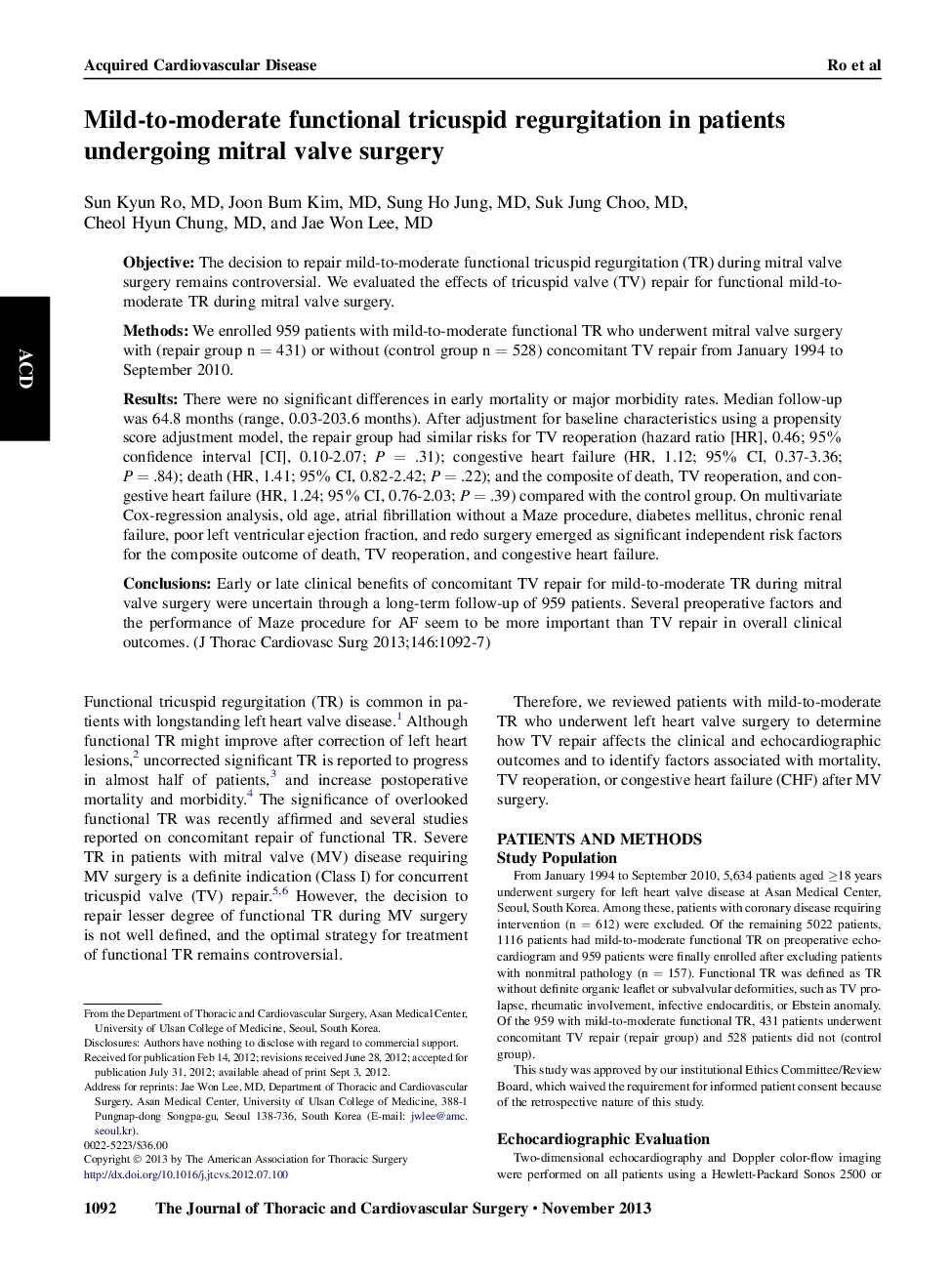| Article ID | Journal | Published Year | Pages | File Type |
|---|---|---|---|---|
| 2979831 | The Journal of Thoracic and Cardiovascular Surgery | 2013 | 6 Pages |
ObjectiveThe decision to repair mild-to-moderate functional tricuspid regurgitation (TR) during mitral valve surgery remains controversial. We evaluated the effects of tricuspid valve (TV) repair for functional mild-to-moderate TR during mitral valve surgery.MethodsWe enrolled 959 patients with mild-to-moderate functional TR who underwent mitral valve surgery with (repair group n = 431) or without (control group n = 528) concomitant TV repair from January 1994 to September 2010.ResultsThere were no significant differences in early mortality or major morbidity rates. Median follow-up was 64.8 months (range, 0.03-203.6 months). After adjustment for baseline characteristics using a propensity score adjustment model, the repair group had similar risks for TV reoperation (hazard ratio [HR], 0.46; 95% confidence interval [CI], 0.10-2.07; P = .31); congestive heart failure (HR, 1.12; 95% CI, 0.37-3.36; P = .84); death (HR, 1.41; 95% CI, 0.82-2.42; P = .22); and the composite of death, TV reoperation, and congestive heart failure (HR, 1.24; 95% CI, 0.76-2.03; P = .39) compared with the control group. On multivariate Cox-regression analysis, old age, atrial fibrillation without a Maze procedure, diabetes mellitus, chronic renal failure, poor left ventricular ejection fraction, and redo surgery emerged as significant independent risk factors for the composite outcome of death, TV reoperation, and congestive heart failure.ConclusionsEarly or late clinical benefits of concomitant TV repair for mild-to-moderate TR during mitral valve surgery were uncertain through a long-term follow-up of 959 patients. Several preoperative factors and the performance of Maze procedure for AF seem to be more important than TV repair in overall clinical outcomes.
